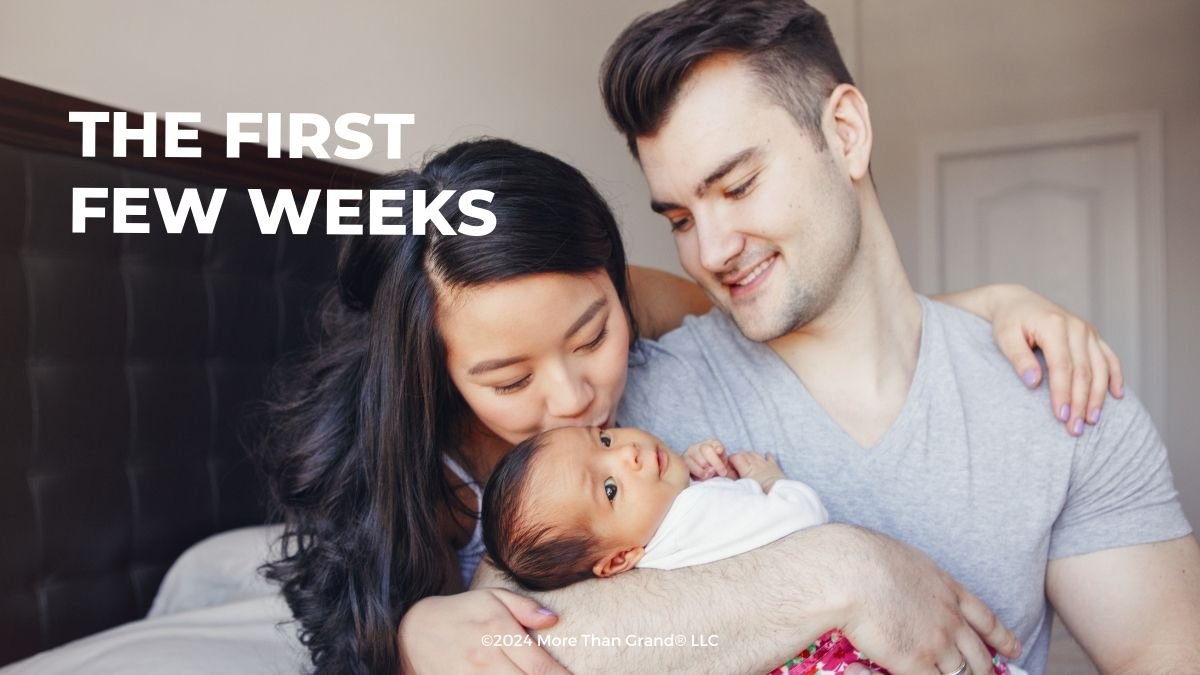Supporting New Parents Through the First Few Weeks
Written by Katie Pierce
Becoming a new parent is one of life’s most exciting experiences. But even with all the excitement that comes with it, parenting comes with a host of new challenges – many of which many new parents are unprepared for.
Parenting today is different from even a decade ago. Those differences include more mothers returning to work after a short maternity leave, increased awareness of postpartum mental health, and higher costs to raise a child. Grandparents can help new parents on their journey by being aware of ways to provide meaningful support.
How to Support New Parents
New parents are likely to face many challenges in the early weeks. To help them in as they adjust to their new reality, here’s what to keep in mind:
Do Offer Practical Assistance
One of the best ways to show that you are there for new parents is to offer practical assistance. This can come in many forms: helping out with household chores, carrying out some daily errands, or preparing healthy meals and snacks to keep new parents nourished.
By doing any of these, you lighten their load, giving them more time to focus on bonding with their newborn and adjusting to their new roles as parents.
Also, while caring for the newborn is a top priority of new parents, self-care is just as important. Lending a helping hand gives parents more time to recharge and rest. Remind them that taking care of oneself is not only important for their well-being but also for their ability to take care of their baby.
Don’t Disregard Financial Realities
Let’s face it: raising a child today is a whole lot different than decades ago. With the rising costs of goods and services and lagging wages, many parents today face serious financial challenges.
If you have the means to provide practical assistance, you can ease parents’ financial burden by helping with grocery shopping or offering to babysit.
When you’re giving gifts, it also pays to consider their financial situation and practical needs. For example, you can give thoughtful presents such as diapers or gift cards for baby supplies instead of toys or clothes they will quickly outgrow.
Supporting New Parents’ Mental Health
Now, more than ever, mental health has become a priority – and that holds true regardless of age.
Do Provide a Listening Ear
Parenthood can be overwhelming, but most especially for new parents. An excellent way to provide support to them is to provide a listening ear. Allow them to share their concerns and joys in a non-judgmental space. Offering your empathy and understanding can go a long way.
Don’t Underestimate the Impact of Postpartum Health
More and more people are now prioritizing mental health. After all, a healthy mind allows new parents to take care of their babies to their best capacity. That’s why it’s important to be mindful of the signs and symptoms of postpartum mental health conditions such as anxiety and depression. To make sure you know how to help, read Postpartum Mental Health: Signs Grandparents Should Look For.
Should you notice concerning behavior, you may be able to offer the necessary support and resources. Encourage them to seek a health professional if symptoms worsen.
Respecting Boundaries and Visit Frequency
Before you visit the new parents and meet their baby, here’s what you should know:
Do Respect Boundaries
While help and advice are usually welcomed, do it too much and you can cross the line. Ask before offering either, so you know what parents truly need. Be sure that you also respect their boundaries, especially when it comes to visiting, advice-giving, and involvement in parenting decisions.
Your intentions may be great, but you must give them space to take on their new role independently and make the right decisions for their family.
It’s possible that the parents are overwhelmed by the multitude of advice they receive from friends and other family members, so providing unsolicited advice may not always work. By respecting their boundaries, you show that you trust and respect their ability to make critical family decisions.
Don’t Overwhelm With Visits
Your excitement with the new baby is justified, but be careful not to overwhelm the new parents with frequent visits. Respect their need for privacy and bonding time as a family. New parents are often adjusting to their new lifestyles – new routines, sleepless nights, and getting to know their newborn.
Respecting their need for privacy allows parents to focus on bonding with their baby without feeling overwhelmed by external demands. Although your presence is appreciated as a grandparent, the main focus in the first few weeks is the relationship between the parents and the baby.
Grandparents Can Play an Important Role in Supporting New Parents
That being said, grandparents can play an important role in supporting new parents, from helping them financially to providing emotional encouragement. We designed New Grandparent Essentials to give grandparents the tools they need to support their growing family. A grandparent who is a willing part of the support team can make all the difference in helping new parents as they raise their baby.
Find out more about how New Grandparent Essentials can help you support new parents and enjoy your own journey as a grandparent.
Katie Pierce is a teacher-slash-writer who loves telling stories to an audience, whether it’s bored adults in front of a computer screen or a bunch of hyperactive 4-year-olds. Writing keeps her sane (most of the time) and allows her to enjoy some quiet time in the evening before she walks into a room of screaming kids (all of whom she loves dearly) the next morning.



